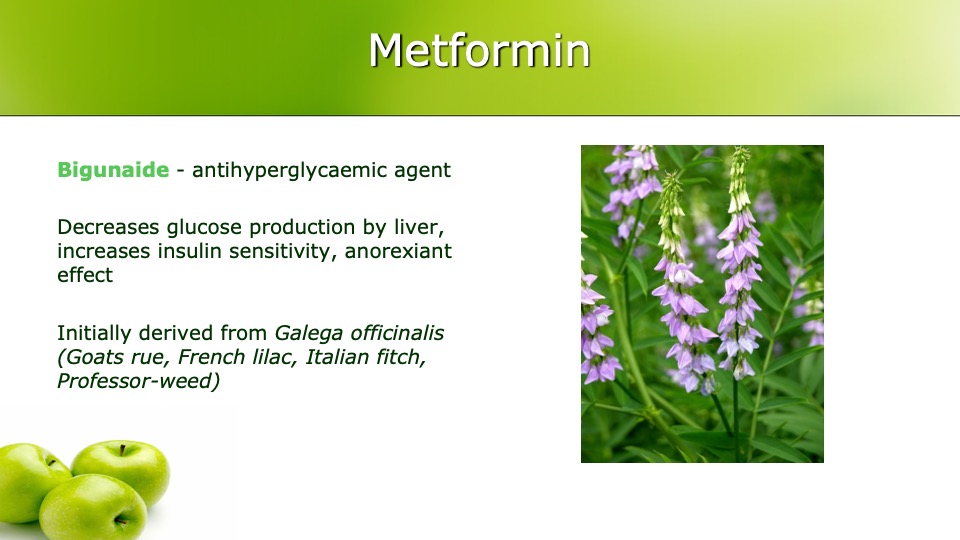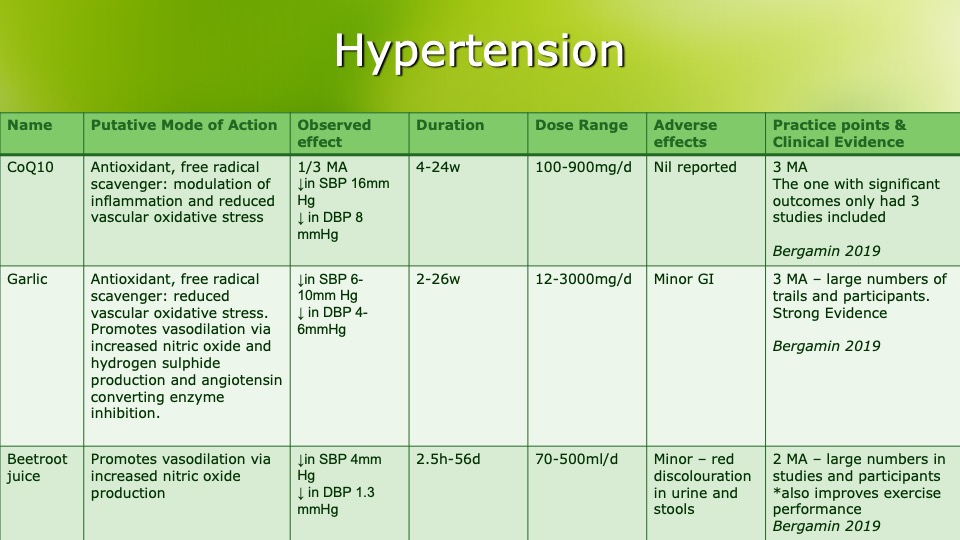Medicinal foods Part 1: Cardiovascular disease. Dr Evangeline Mantzioris, BSc, BND,PhD, APD, AccSD


For centuries the medicinal compounds found in food have been used for treating illness (eg. Biguanide originally from Galega officinalis is known as Metformin). More recently there is research to back up how effective these compounds are. Evangeline has examined studies and provides a summary of which compounds we should be considering in use with our clients.
In her introduction she explains the regulation and risks involved with the use of nutraceuticals. She also emphasises that whole foods and the clients overall dietary pattern should be our first line management.
Below is a summary of the medicinal food compounds she evaluates.
For Cardiovascular disease in general:
CoQ10, garlic, beetroot juice, berberine, ginseng, phytosterols, curcumin, N-3 fatty acids
For hypertension:
CoQ10, garlic, beetroot juice
For hyperlipidaemia
Psyllium, ß-glucan, phytosterols, curcumin, berberine, ginseng
For coronary artery calcium
Vitamin K, N-3 fatty acids, Vitamin D
Dr Evangeline Mantzioris, BSc, BND, PhD, APD, AccSD is the Program Director of the Nutrition and Food Sciences Degree at the University of South Australia. She is an Accredited Practicing Dietitian (APD) and Sports Dietitian (AccSD) and has experience in clinical dietetics and clinical teaching at major Adelaide teaching hospitals and in private practice.
Evangeline is passionate about communicating nutritional science to the public and has been invited to talk at WOMADelaide, Australian Society for Medical Research Public Dinner, Raising the Bar and Tasting Australia. She is an author of a sports nutrition textbook ‘Nutrition for Sport, Exercise and Performance’ and contributor to The Conversation. Evangeline's research interests include: nutraceuticals including omega-3 fatty acids; Mediterranean Diet, Sports Nutrition and the environment-food nexus.
To register for the presentation and associated documents including the assessment quiz click here